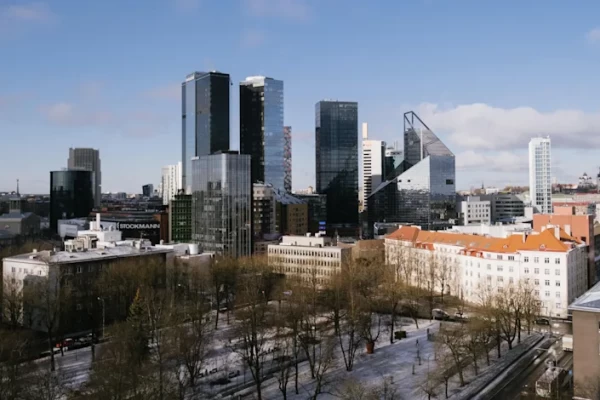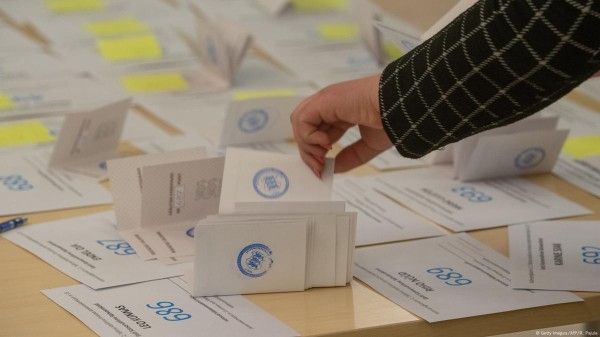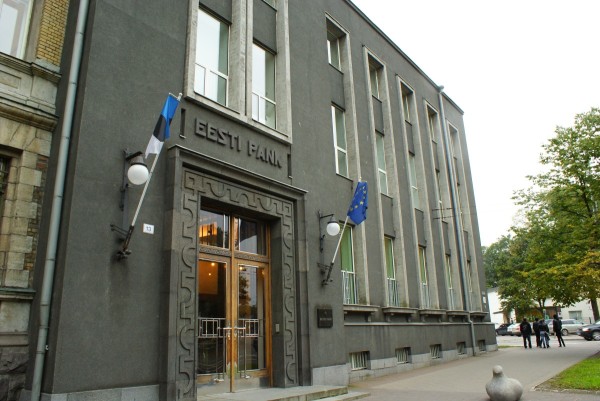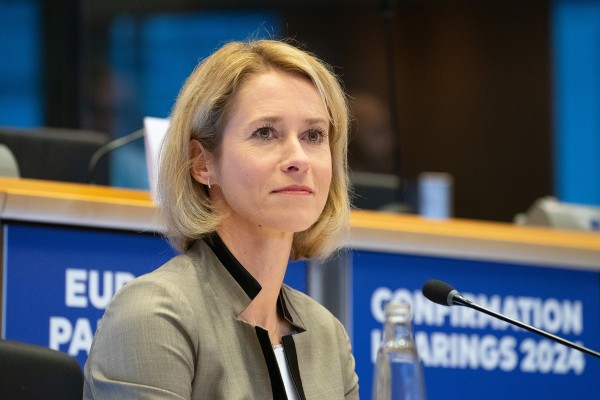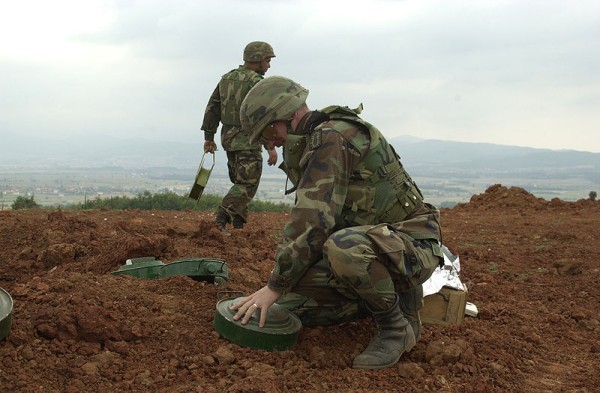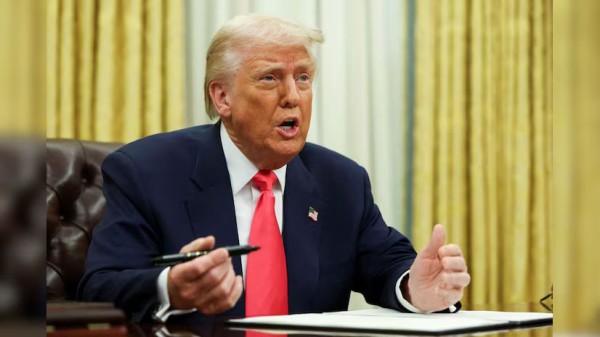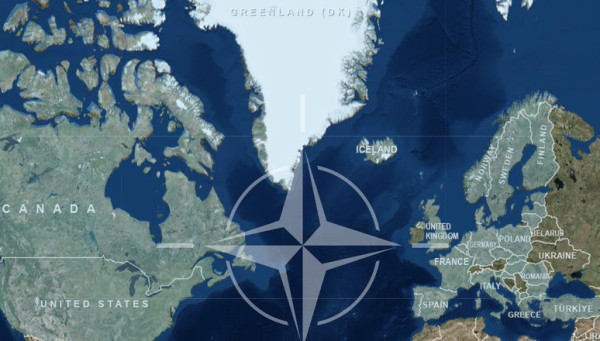Unlike Ukraine, however, these states — Estonia, Latvia and Lithuania — are members of NATO and are close allies of the United States. For years, they have raised the alarm that Russia is their most existential threat. Yet, they feel they received little response prior to the invasion of Ukraine.
Now, unless they get further support from their allies, some worry they could be the next target of the Kremlin and the very bombs and missiles that it has used to level Ukrainian cities.
Estonian Foreign Affairs Minister Eva-Maria Liimets told NBC News on Tuesday that Russia is not a direct threat at the moment, but her nation’s defense and its future as a liberal democracy depend on the clear support of its allies, especially Washington.
“It’s very important to see U.S. military presence in Europe, and we would also welcome U.S. troops here in Estonia, in addition to the other allied presence we have at the moment: troops from the United Kingdom, from France, from Denmark,” she said, later sharing her hopes that the addition of NATO’s battle groups would be a permanent fixture of Estonia’s defense.
The Department of State and the National Security Council did not respond to requests for comment.
Advertisement / Reklaam
Advertisement / Reklaam
Liimets, who has served in her role since January 2021, emphasized that Estonia and the U.S. maintain “very good relations,” noting her visit to Washington in February and Secretary of State Antony Blinken’s stop in Estonia in March.Still, she said, more could be done to make that support concrete.
“From our perspective, of course, it would be very important to also see a new U.S. ambassador here in Estonia,” she said. The post has sat empty since James Melville Jr., the most recent U.S. ambassador to Estonia, resigned in protest in 2018 over then-President Donald Trump’s comments about the European Union and NATO.
This year is the 18th anniversary of Estonia’s membership in NATO, and the 100th year of diplomatic relations with the U.S. But most remarkably for Estonians, the first shells fell in Ukraine on Feb. 24 — the day they celebrate their independence from the occupation of the then-Soviet Union.
‘It’s not enough’
Baltic states' officials and lawmakers see Ukraine’s struggle and its future as intertwined with their own security and the fate of their liberal democracies. Russia’s latest acts of aggression, they say, are affirmation that the Kremlin remains their greatest threat, despite close allies telling them for years that they were alarmist.
Here in Estonia’s capital city, which boasts a history that stretches back to the 13th century, newly built skyscrapers of glass and steel are lit up at night with the blue and yellow of Ukraine. In the old town sector — made up of towering ancient churches and castle walls — shops and restaurants display small Ukrainian flags and collection tins for Ukrainian refugees. At the Russian Embassy, the building’s entrance is protected by police barriers plastered with anti-war signs. There is often the sound of ripping duct tape as more protest posters are affixed to the fence.
“This war is very worrisome and our society really feels it because we have accepted more than 24,000 refugees from Ukraine,” Liimets said. “This is a big number of refugees. Bear in mind that Estonia is a small nation of 1.3 million people.”
Advertisement / Reklaam
Advertisement / Reklaam
With Russia waging war in Ukraine, Baltic leaders say there needs to be enough NATO-backed defenses in their countries to convince the Kremlin that the cost of any attack would be too high.After a summit of world leaders in Brussels last week, NATO sent four battle groups to Bulgaria, Hungary, Romania and Slovakia. They did not come to any agreements on the defense of Latvia, Lithuania and Estonia. To further support the region, though, about 2,700 U.S. troops are already stretched unevenly across the Baltic states, and thousands of NATO troops have been deployed to further reinforce the region’s protections.
“We welcome these reinforcements, but it’s not enough — absolutely not enough,” said Rihards Kols, the chair of the foreign affairs committee in the Latvian Parliament. “Unfortunately at the Brussels summit, there weren’t concrete decisions put on the table to not only strengthen the eastern flank, but also support the Baltic states’ defensive posture altogether.”
Kols and other leaders said that they must now prepare to make their case at NATO’s June summit in Madrid, where the alliance will work to define its security threats and how to address them politically and militarily.
But many emphasized that Russia’s acts of aggression are happening now and, as Kols said, “I don’t think time is an ally.”
This fear has heightened in recent days and weeks and many emphasized how immense a threat Russia is believed to be for their democracies.
In a 75-page booklet published by the Estonian Foreign Intelligence Service shortly before the war in Ukraine, titled “International Security and Estonia 2022,” 60 pages are dedicated to the dangers posed by Russia and Belarus. The Baltic leaders also regularly recall the history of Soviet occupation, which lasted longer than many in the West realize — Russian troops did not leave Estonia until 1994, three years after the Soviet Union dissolved.
Advertisement / Reklaam
Advertisement / Reklaam
“For us, it is very important that we can continue this democratic path, which our people have chosen, and we have to protect our country, our territory, so that our people can live in peace,” Liimets said.“We have seen that Russia is aggressive against its neighbors,” she added. “We saw it in 2008 in Georgia, in 2014 in Ukraine, and now again in Ukraine.”
Full article: https://news.yahoo.com/baltics...






